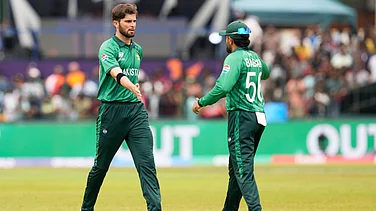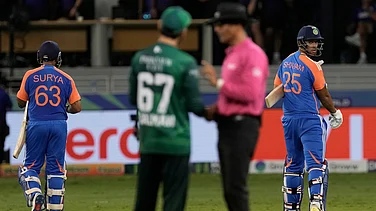Costs
- Travel/Stay: Costs could be high for teams. IPL will share the bill.
- Training: Practice facilities will cost. At home local bodies help out.
- Venue: Franchisees will bear higher cost. In India, local bodies chip in.
- Players: Home players may need to be paid more for tour
- Gate Collections: Goes for a toss as low interest expected in SA
- On-Ground Ads: Advertisers worried about connect, will reduce rates
- TV Spots: Viewership dip unlikely, but advertisers missing local element
- Central Revenues: Would have been lost if IPL was called off
***
The mood is equally cloudy across all eight franchisees that looked at IPL '09 as the crucial year of consolidation. Despite claims, no team is believed to have made money in IPL '08. Given the uncertain economic environment, it was always going to be a tough year—perhaps even a make-or-break one for some. Most of them are now grappling, trying to figure how things will pan out. "The risk and stakes just got higher. Next season becomes much more crucial for the franchisee's survival," says Santosh Desai, CEO, Future Brands.
Media marketers feel that having launched brand IPL last year, it was time for franchisees to cash in—slowdown be damned. Most teams had invested in promotions and were looking at revenues from brand development. With the venue change, that opportunity is lost. Says Meenakshi Madhwani, managing partner at media audit firm Spatial Access: "This year the tournament was being moved to another level by building communities. Now that will have to wait for one year." Tackling other avenues like gate receipts and merchandising—which did not click last year—was also on the radar of the franchisees.
Daredevils, for instance, was looking at a 20 per cent increase in revenue and a significant reduction in costs. Those numbers will have to be reworked. As Mathur says, the franchisees are happy the tournament is at least taking place. In such uncertain times, that will assure them of their share of revenues—from TV rights and title sponsorship (held by DLF)—which will cover much of the operating expenses and keep them going.
For the moment, though, all teams can only see a huge surge in costs. Says Sandeep Goyal, chairman of media agency Dentsu India: "Moving an entire paraphernalia around the team, its support staff, administrative staff, coaches etc for 40 days is a large enough expense on air travel, hotels, food, insurance and incidentals." Of course, all such domestic deals have gone down the tube. As Desai puts it, "The problem with IPL is that it's a very high-cost event, so if things go wrong, the magnitude is pretty big."
There could also be additional costs thanks to the players. Since this scenario was unanticipated—and hence not factored in—there is already demand for higher compensation for players. "Not all players of course, but the marquee players at least...I know there are contracts, and they're being paid well, but I'd imagine there still could be some compensation for the displacement," explains Latika Khaneja of Collage Sports Management.
While all this is being thrashed out, sponsors are also remeasuring the worth of every paisa spent on the IPL. A Hyundai spokesperson said while there was no change in their status as of now, there was a possibility of renegotiation of rates. Others were more direct. Says V. Ramachandran, director, marketing, LG Electronics: "The rates that were asked for were already very challenging, so a lot of people were still in discussion. Now, with the changed scenario, if there's a risk and if media delivery and connect is coming down, the rates we are willing to pay would also come down."
Of course, the franchisees are banking on the IPL management to save them. We don't yet know how IPL will connect with the authorities in South Africa, and to what extent it will absorb the losses of the franchisees. Says Mathur: "Obviously, IPL has to come to the assistance of the franchisees. They have shown positive intent. The actual mechanics remains to be seen." It's also unclear how audiences will warm up to the league. "Despite stadiums in South Africa being smaller, it might be difficult to fill up. Who would want to watch a match where a majority of the players are unheard of?" says Dushyant Singh, director KPMG.
With Indian TV viewers certain to provide eyeballs, the only thing going for IPL is its telecast (after many legal clashes with the BCCI, it will finally be beamed by Sony's Multi Screen Media). Last year the league was an unqualified TV success, but worried advertisers will try and bring down rates. Taking a wider view, the teams were looking at a three-year period to break even. That would have to wait. Much would depend on how the IPL management "accommodates" the franchisees' losses—or next year's tourney could see new faces raising the paddle to pick up yet another star player.






















